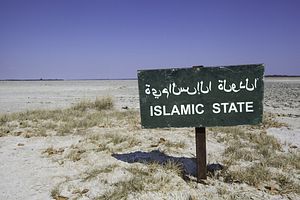The Islamic State, or IS, published pictures of two hostages on Wednesday, labeling them as “for sale.” According to Islamic State’s online magazine, Dabiq, one of the men is a 50-year-old Chinese man, identified as Fan Jinghui. The other man was identified as a Norwegian, Ole Johan Grimsgaard-Ofstad.
The pictures were accompanied by a telegram number for use by “whoever would like to pay the ransom for [the men’s] release and transfer.” The magazine warned that “this is a limited time offer,” implying that the men may be threatened with violence.
Earlier this year, two Japanese hostages were beheaded on camera after the Japanese government declined to pay a requested ransom within IS’ deadline. IS has also executed citizens from Australia, France, the United Kingdom, and the United States.
In a video showing one of the executions, IS blamed Japan’s government for the hostage’s death. Likewise, Dabiq magazine accused the Norwegian and Chinese governments of abandoning their citizens by not doing the “utmost to purchase [their] freedom.”
Chinese foreign ministry spokesperson Hong Lei said on Thursday that China’s government was aware of the report that IS is holding a Chinese hostage. China “is verifying the information,” Hong said. He also reiterated China’s “firm opposition to any violence against innocent civilians.”
The Norwegian government did confirm that one of the hostages was a Norwegian who is being held in Syria, likely by IS. Prime Minister Erna Solberg told journalists on Wednesday that the man had been captured in January. “The kidnappers have presented a series of demands and significant amounts of ransom money,” she said, according to AP.
Despite Beijing expressing concerns over the situation in Iraq and Syria, IS has had little direct effect on Chinese citizens to date. In the summer of 2014, IS advances threatened Chinese workers in Iraq, but Beijing was able to evacuate its citizens from threatened areas.
The more potent threat, from China’s perspective, is that Chinese extremists, especially radicalized members of the Uyghur minority group, may seek to join IS. In March, the Party secretary of Xinjiang, Zhang Chunxian, told reporters that Uyghurs were joining IS, and that China’s security forces had already broken up one terrorist cell composed of former IS fighters.
Still, China has largely remained on the sidelines of the fight against IS, despite pledging its support for Baghdad in the fight against the group, which has occupied swaths of northern Iraq. Instead, China has focused its efforts on domestic counterterrorism.
































